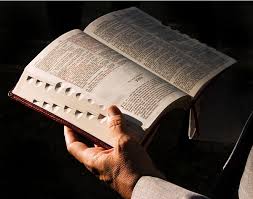 In these books, Haggai and Zechariah, the Jews are never called God’s people, except in prospect of the future.
In these books, Haggai and Zechariah, the Jews are never called God’s people, except in prospect of the future.
Haggai
Haggai is occupied with the house, and declares that its latter glory will be greater than its first. God says that shakes all nations, and encourages them to build, declaring that His Spirit went with them’ as it was when Israel left Egypt. God will overthrow the throne of all kingdoms, and establish Christ under the name of Zerubbabel, as the elect Man, as the signet on His right hand.
Zechariah
Zechariah is particularly occupied with Jerusalem. He shows the Lord dealing with all nations, having Jerusalem as a centre, using one nation to cast out another, till His purposes are accomplished. Then, when the glory has come, He establishes Himself at Jerusalem. In the person of Joshua, the high priest, He justifies her against the adversary; He declares that He will come, and He puts all wisdom, the omniscience of His government, in Jerusalem. He prophesies as to the perfection of the administrative order in the kingdom and priesthood, and the judgment of all corrupt pretension to it, which is shown to be Babylonish. He builds the temple of the land by means of the Branch, judging the hostile power of the world, using all this to encourage them at that time in building the temple. Thus far is one prophecy (chaps. 1-6).
In the next prophecy he takes occasion, by those who inquire whether they should fast for the ruin of Jerusalem, to promise her restoration (now, for the present, on the ground of responsibility). He declares that He will protect His house against all surrounding enemies. He brings in Christ in humiliation, and carries on to the time of glory. He foresees Chris’s executing judgment by Judah upon Greece (Javan), gathering all the scattered ones. In chapters 11-14 we have the details of Christ’s rejection, and the foolish and idolatrous shepherd, when He judges all the nations as meddling with Jerusalem. He defends Jerusalem, bringing them to repentance, and opens the fountain for their cleansing. In contrast to the false spirit of prophecy, we get Christ’s humiliation and the sparing of a remnant, when the body of the people are cut off from Judea at the end. We have the final deliverance and the sanctifying of Jerusalem by the presence of the Lord, making her the centre of all worship upon earth.
In chapter 13:5 we see Christ as the servant of man, the rejected one of the Jews, and the smitten of Jehovah. “For man possessed me from my youth.” It then appears that it was among His friends that He was wounded in His hands. The great secret of all comes out, that He was Jehovah’s fellow, and smitten of Him. (Note, where Christ is owned as God, He calls the saints His fellows; and where, as here, He is in deepest humiliation, God calls Him His fellow.)
Malachi
Here we have the testimony of the restored Jews’ total failure. This was in spite of God’s electing love, which He still maintained. Then the Lord comes, sending a messenger before His face. He comes in thoroughly sifting and purifying judgment, owning the remnant who spake one to another in the fear of the Lord, in the midst of the wickedness. He lifts them up, and sets them over the power of the wicked, the Sun of Righteousness rising upon them for healing. But at the same time He calls them back to the law of Moses, with the promise of sending them Elijah the prophet to turn their hearts.
Originally by JND. Lightly edited by Sosthenes, July 2014
– Se A Brief Outline of the Books of the Bible for the original

